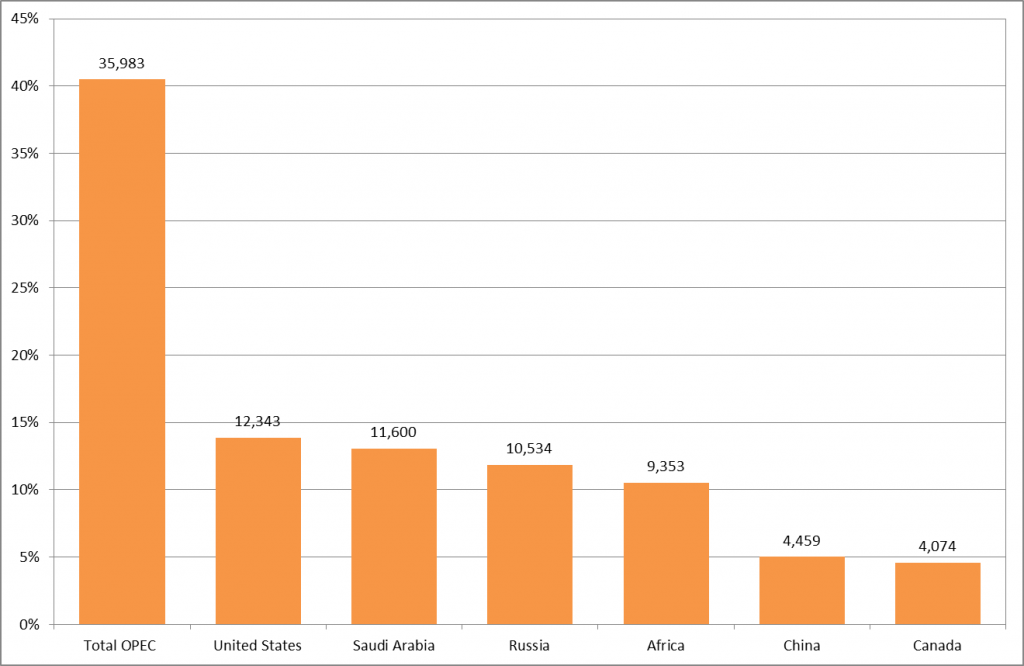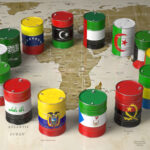Rosneft’s CEO blamed OPEC for the crash in oil prices putting pressure on the Russian economy
Igor Sechin, CEO of state-run energy giant Rosneft (ticker: RNFTF), made a rare appearance in London for the International Petroleum Week event where he blamed OPEC for the current low prices hurting Russia and other oil exporters.
“OPEC has lost its teeth,” Sechin said through an official translator at the event. The organization’s decision to let oil prices fall in order to protect market share led to a “destabilization” of the market according to Sechin, reports Reuters. Sechin did not go as far as some who have said the price drop was orchestrated by the United States and Saudi Arabia to hurt Russia and Iran, but he did say that prices had nevertheless been “manipulated.”
Rosneft’s CEO said OPEC’s more powerful members are pushing a policy that no longer represents the entire organization’s best interest. “This organization lost the unity of its members and in some cases is not respecting the interests of some of its members,” Sechin said.
The comments will likely cause a greater rift between Russia and OPEC, which has asked Russia to help curb production in the past, though Russia has never complied. Sechin said Russia would never join OPEC as its energy industry is made up of private energy companies. Rosneft is a publicly-listed company, though the Kremlin owns more than 50% of its shares.
Russian exports are expected to fall further in 2015
Mr. Sechin’s comments came as the Federal Customs Service of Russia announced that like-for-like oil exports from the country declined by nearly 11.4% to $153.8 billion in 2014. According to the custom service’s information, falling oil prices and Western sanctions are beginning to affect Russia’s oil and gas exports.
The physical volume of oil export edged down 5.6% to 223.4 million tons in 2014 as opposed to 236.6 million tons a year earlier, reports Hellenic Shipping News. Data on gas exports showed Gazprom lost 18.6% gas export revenues in 2014, totaling $53.74 billion, as the company cut its export volume by 12.1% to 172.6 Bcm.
In 2014, the annual average contract price for Russian gas stood at $317 per 1,000 cubic meters, a year-on-year drop of 7.5%. In total, the country saw a decline of 7% in overall foreign trade, which amounted to $782.9 billion compared with 2013.
OPEC’s monthly report also reduced its export and output predictions for the world’s largest oil producer. The organization estimated that Russia’s oil exports in 2015 would drop by 60 MBOPD, and that oil production would fall by 70 MBOPD.

Important disclosures: The information provided herein is believed to be reliable; however, EnerCom, Inc. makes no representation or warranty as to its completeness or accuracy. EnerCom’s conclusions are based upon information gathered from sources deemed to be reliable. This note is not intended as an offer or solicitation for the purchase or sale of any security or financial instrument of any company mentioned in this note. This note was prepared for general circulation and does not provide investment recommendations specific to individual investors. All readers of the note must make their own investment decisions based upon their specific investment objectives and financial situation utilizing their own financial advisors as they deem necessary. Investors should consider a company’s entire financial and operational structure in making any investment decisions. Past performance of any company discussed in this note should not be taken as an indication or guarantee of future results. EnerCom is a multi-disciplined management consulting services firm that regularly intends to seek business, or currently may be undertaking business, with companies covered on Oil & Gas 360®, and thereby seeks to receive compensation from these companies for its services. In addition, EnerCom, or its principals or employees, may have an economic interest in any of these companies. As a result, readers of EnerCom’s Oil & Gas 360® should be aware that the firm may have a conflict of interest that could affect the objectivity of this note. The company or companies covered in this note did not review the note prior to publication. EnerCom, or its principals or employees, may have an economic interest in any of the companies covered in this report or on Oil & Gas 360®. As a result, readers of EnerCom’s reports or Oil & Gas 360® should be aware that the firm may have a conflict of interest that could affect the objectivity of this report.







